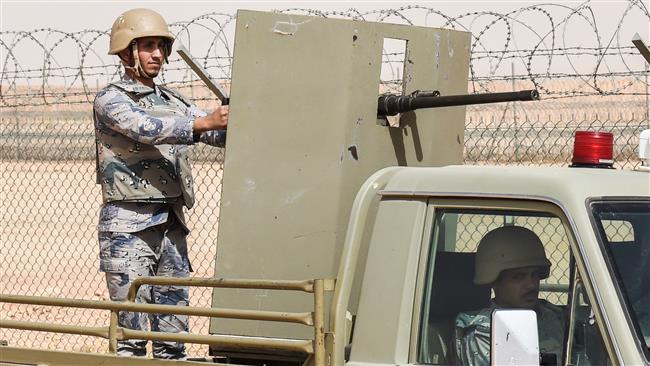Butcher Netanyahu leverages Syria’s turmoil to secure advantages in the midst of his corruption trial
Israeli Prime Minister Benjamin Netanyahu's testimony, which he has frequently sought to postpone, is anticipated to extend over several months and holds significant implications for both his political future and personal liberty.

On Tuesday, Israeli Prime Minister Benjamin Netanyahu commenced his much-awaited testimony in his ongoing corruption trial, introducing an additional layer of uncertainty amidst the already volatile landscape of the Middle East, as reported by Axios.
Netanyahu’s testimony, which he has consistently sought to postpone, is anticipated to extend over several months and is deemed vital for his political endurance and personal liberty, according to the report.
This development occurs as he leads a military campaign in Gaza, continues the occupation of additional Syrian territories amidst the Assad regime’s destabilization, and is named in an international arrest warrant on charges of war crimes.
In November 2019, then-Israeli Prime Minister Benjamin Netanyahu was formally charged with bribery, fraud, and breach of trust in a series of high-profile cases. In Case 4000, Netanyahu allegedly granted regulatory advantages to a prominent figure in the Israeli telecommunications industry in return for positive media coverage. Meanwhile, Case 2000 involved accusations of fraud and breach of trust, with Netanyahu purportedly negotiating a deal with a newspaper publisher to secure favorable press. Case 1000 saw Netanyahu accused of accepting gifts amounting to $200,000, including cigars, champagne, and jewelry, from businessmen in exchange for furthering their interests.
The trial, initially set to commence six months following his indictment, has encountered delays attributed to strategic maneuvers by Prime Minister Netanyahu’s legal team. Recently, his attorneys argued that Netanyahu might face a potential drone strike threat during a public testimony, prompting the judiciary to relocate proceedings to a secure venue in Tel Aviv. Furthermore, citing the ongoing conflict in Gaza, Netanyahu’s lawyers contended that he was unable to appear in court three times per week, leading the judges to make limited adjustments to the trial schedule.
According to a recent report, Israeli Prime Minister Benjamin Netanyahu sought to leverage the potential fall of President Bashar al-Assad’s regime in Syria as a means to delay his scheduled testimony. During a security cabinet session, several ministers advocated for the attorney general to defer Netanyahu’s testimony, arguing that it posed national security risks. However, the request was ultimately rejected.
On the eve of his scheduled testimony, Israeli Prime Minister Benjamin Netanyahu convened an unusual press conference, levying accusations against the attorney general, the prosecutorial team, and law enforcement officials, asserting their actions were driven by political motives. Labeling the proceedings against him as a “witch hunt,” Netanyahu predicted that the trial would culminate without any convictions. Additionally, he criticized journalists for disseminating “lies and fake news.” Netanyahu stressed his eagerness to present his narrative, declaring, “I don’t want to talk? Tomorrow I am talking,” highlighting the extended duration he has awaited to testify since the initiation of the investigations.
Israeli Prime Minister Benjamin Netanyahu has maintained that his simultaneous positions as the country’s leader and a legal defendant do not constitute a conflict of interest. Nevertheless, he has advocated for judicial reforms that would potentially favor his legal situation. Since assuming office again in late 2022, Netanyahu and his coalition have embarked on initiatives perceived as undermining Israel’s institutional framework. These include legislative proposals to increase immunity for parliament members, shield intelligence personnel circumventing standard procedures from legal repercussions, and restrict the establishment of investigative commissions into security lapses.
Prime Minister Benjamin Netanyahu’s coalition is reportedly advancing legislation aimed at barring Arab-Israeli citizens from participating as candidates in elections. Such a move could lead to a substantial decrease in voter turnout within the Arab community, potentially hampering the electoral prospects of Netanyahu’s political opponents.
In a speech delivered on Monday, Israeli Prime Minister Benjamin Netanyahu asserted that the Golan Heights, occupied by Israel, will remain under Israeli control “for eternity.” This statement comes after six decades marked by confrontations with Syria, which was previously led by the recently ousted President Bashar al-Assad and before him, his father, former President Hafez al-Assad.
In a statement delivered from occupied Jerusalem, Israeli Prime Minister Benjamin Netanyahu expressed gratitude to U.S. President-elect Donald Trump for acknowledging Israel’s 1981 annexation of the territory during his earlier presidency. Netanyahu affirmed that “the Golan will remain an integral part of the State of Israel forever.”
Israeli Prime Minister Benjamin Netanyahu emphasized the strategic importance of maintaining control over elevated terrains, asserting it is crucial for the nation’s security and sovereignty.
Israel’s actions have been deemed a violation of the 1974 Disengagement Agreement with Syria, as stated by the United Nations and neighboring countries of the occupied Palestinian territory.




